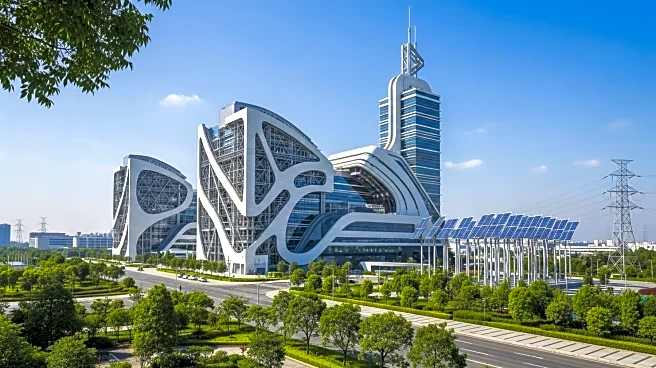What's Happening?
In Richland Parish, Louisiana, Meta is constructing a massive $10 billion data center, which will require over $3 billion in new electricity infrastructure. The project has raised concerns about the financial burden on taxpayers, as watchdogs warn of limited oversight in infrastructure projects driven by tech companies. Entergy, the power company, has agreed to build three gas-powered plants to support the facility, but nondisclosure agreements obscure the financial details, including Meta's contribution. Consumer advocates have unsuccessfully attempted to compel Meta to provide transparency during regulatory reviews. The Public Service Commission approved the infrastructure plan, but concerns remain about potential impacts on residential rates and the long-term financial implications for the community.
Why It's Important?
The development of Meta's data center in Louisiana highlights the growing influence of tech companies on local infrastructure and the potential economic impact on communities. While the project promises job creation and investment in renewable energy, the lack of transparency and potential financial burden on taxpayers raises questions about the equitable distribution of costs and benefits. The situation underscores the need for regulatory frameworks that protect consumers from bearing the costs of infrastructure projects primarily benefiting large corporations. The debate in Louisiana reflects broader national concerns about the role of tech companies in shaping public policy and infrastructure development.
What's Next?
As the construction of Meta's data center progresses, stakeholders will continue to monitor the financial arrangements and potential impacts on local communities. The Public Service Commission may face pressure to revisit the terms of the agreement, especially if residential rates are affected. Other states are taking steps to insulate consumers from similar costs, and Louisiana may need to consider adopting similar measures. The long-term success of the project will depend on balancing economic benefits with the financial responsibilities of Meta and ensuring transparency in infrastructure development.
Beyond the Headlines
The situation in Louisiana raises ethical questions about the role of confidentiality agreements in public infrastructure projects and the accountability of tech companies in contributing to community development. The potential for a boom-and-bust cycle in Richland Parish highlights the need for sustainable economic planning that considers the long-term welfare of residents. The case also illustrates the broader trend of tech companies exerting influence over public policy, prompting discussions about the need for stronger regulatory oversight and public engagement in decision-making processes.










